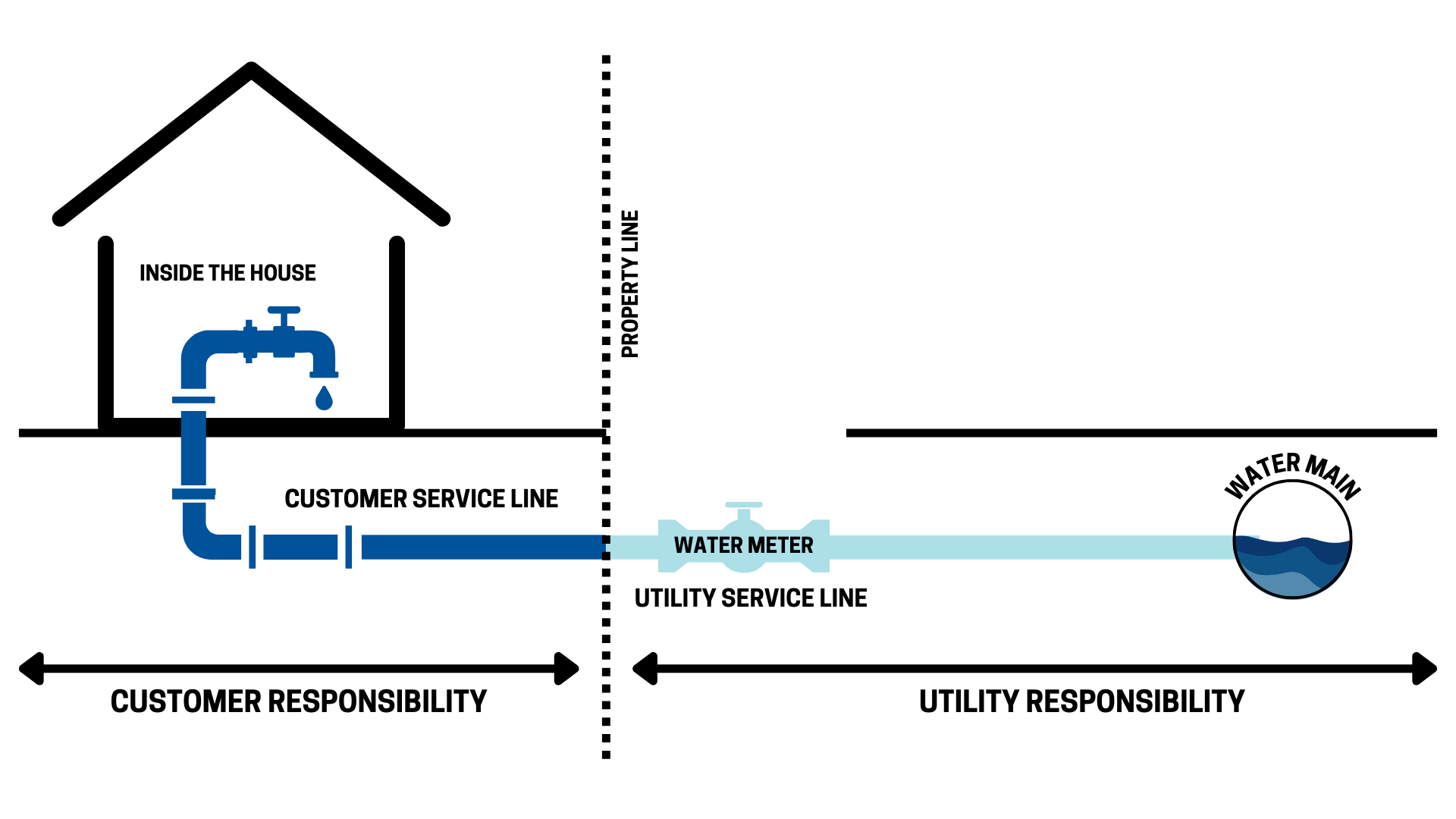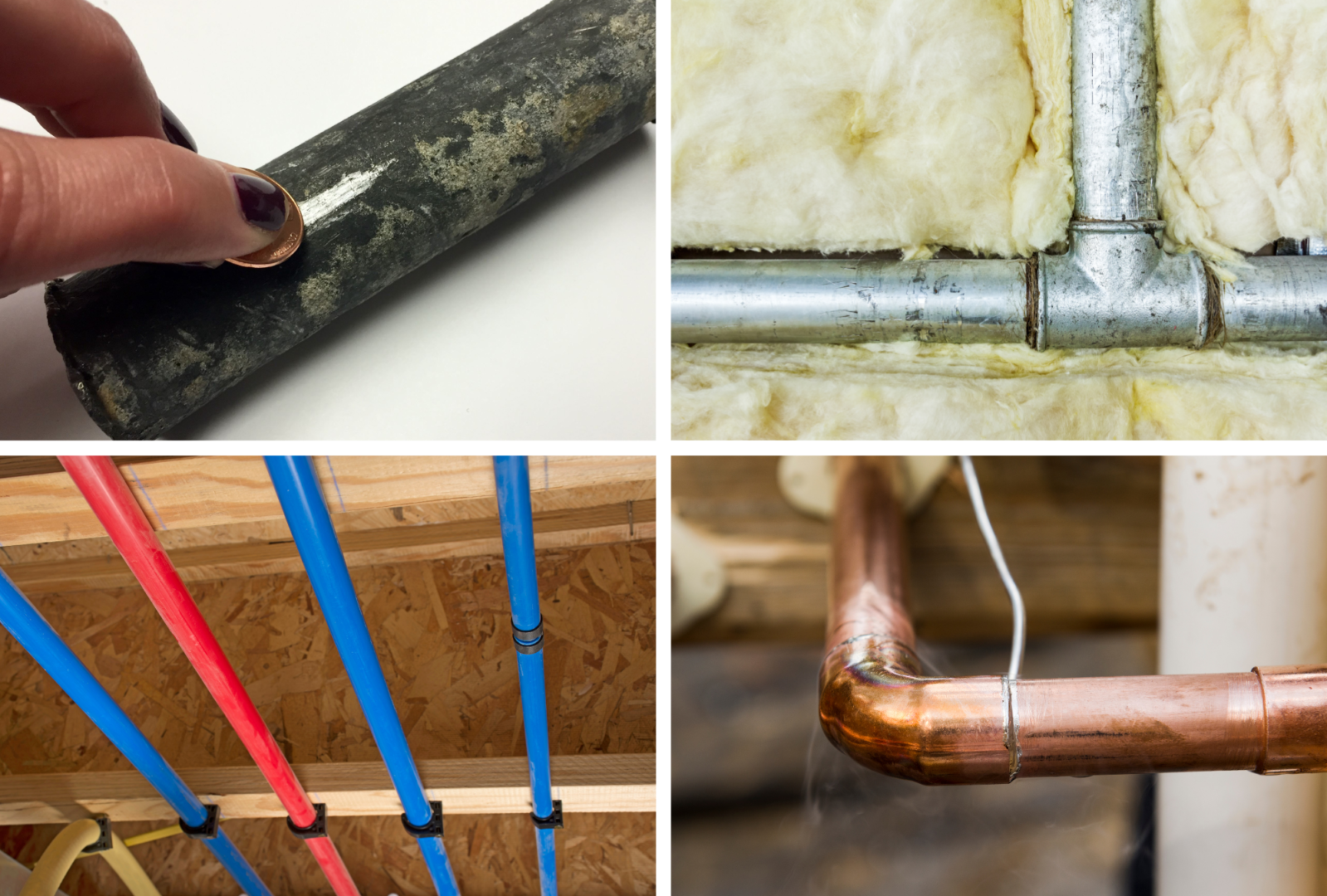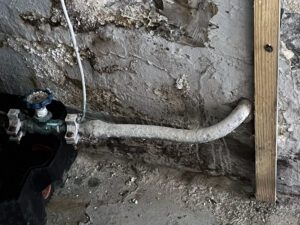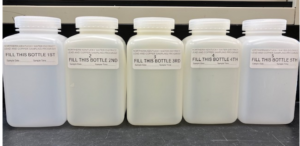Service Line Material Inventory Map
What is this map?
In accordance with the United States Environmental Protection Agency’s (EPA) revised Lead and Copper Rule, the Northern Kentucky Water District (NKWD) is creating an inventory of service line materials in our system. The service line is the small line that connects your house or building to the public water main. This map provides information about both the private (customer owned) and public (NKWD owned) portion of a service line.
How do I use it?
To search for a specific address, use the search function on the map. Using the key, you can identify whether the service line is Lead, Non-Lead, or Unknown.
This information is updated regularly when new records are received to report the most accurate data.


Updating Our Records:
NKWD is continually building our inventory. If your property is listed as an unknown material, you can learn how to identity your service line material type and report it on our website. Additionally, you can contact us at (859) 578-5451 or via email.
It is important to identify and report your service line material, even if it is not lead.
If you need to update the current record on our map, please contact us so we can make appropriate changes.
Service Line Material Inventory Map
For a different view, visit the map website.
What if my service line is made of lead?
There are several steps that you can take to reduce exposure to lead in drinking water and they include:
- Before drinking or cooking with water from a tap that has been unused for over 6 hours, let the water run at the maximum flow for 3-5 minutes.
- Do not cook with, or drink water from the hot water tap; lead is dissolved more easily in hot water. This also applies when preparing baby formula or mixing water with concentrated juices.
- Boiling water does not reduce lead levels – in fact, it may make lead levels more concentrated.
Additional steps can be found on our Lead Awareness page.

Photo: Example of a lead pipe.
What is NWKD doing to control my exposure to lead?
Protecting you against exposure to lead is a shared responsibility. NKWD is required to provide treatment that minimizes the corrosivity of the water. We do this by adjusting the pH and using a safe additive, a corrosion inhibitor, that protects the pipe material and helps lower the potential for lead to be released into the water. Although corrosion control can reduce risks, the best way to assure your house or building is safe from lead exposure through water is to remove the potential sources of lead. You can take responsibility for identifying and removing service materials that may contain lead, including the service line going into your house or building, as an additional precaution.
If you decide to replace your service line, notify us so that we can replace the portion under our control and test the water at your tap to ensure it is lead-free.
The EPA's regulations includes testing for lead in water samples collected from customers’ houses. The most recent round of lead testing completed in 2024 showed there were no sites above the lead action level* of 15 parts per billion. However, because every house is different, the amount of lead in your tap water may be lower or higher than the monitoring results for the selected sites.
*Action level is the concentration of a containment which, if exceeded, triggers treatment or other requirements which a water system must follow. For lead, 15 parts per billion is the action level.
Water Testing:
 If you are concerned about lead in your drinking water, you may wish to have your water tested. If so, please reach out to us to request a test at (859) 441-0482. Information on lead in drinking water, testing methods, and steps you can take to minimize exposure is available from the Safe Drinking Water Hotline (1-800-426-4791) or or online. If you would like more information on reducing lead exposure and the health effects of lead, visit EPA’s website or contact the National Lead Information Center (NLIC) at 1(800) 424-5323.
If you are concerned about lead in your drinking water, you may wish to have your water tested. If so, please reach out to us to request a test at (859) 441-0482. Information on lead in drinking water, testing methods, and steps you can take to minimize exposure is available from the Safe Drinking Water Hotline (1-800-426-4791) or or online. If you would like more information on reducing lead exposure and the health effects of lead, visit EPA’s website or contact the National Lead Information Center (NLIC) at 1(800) 424-5323.
